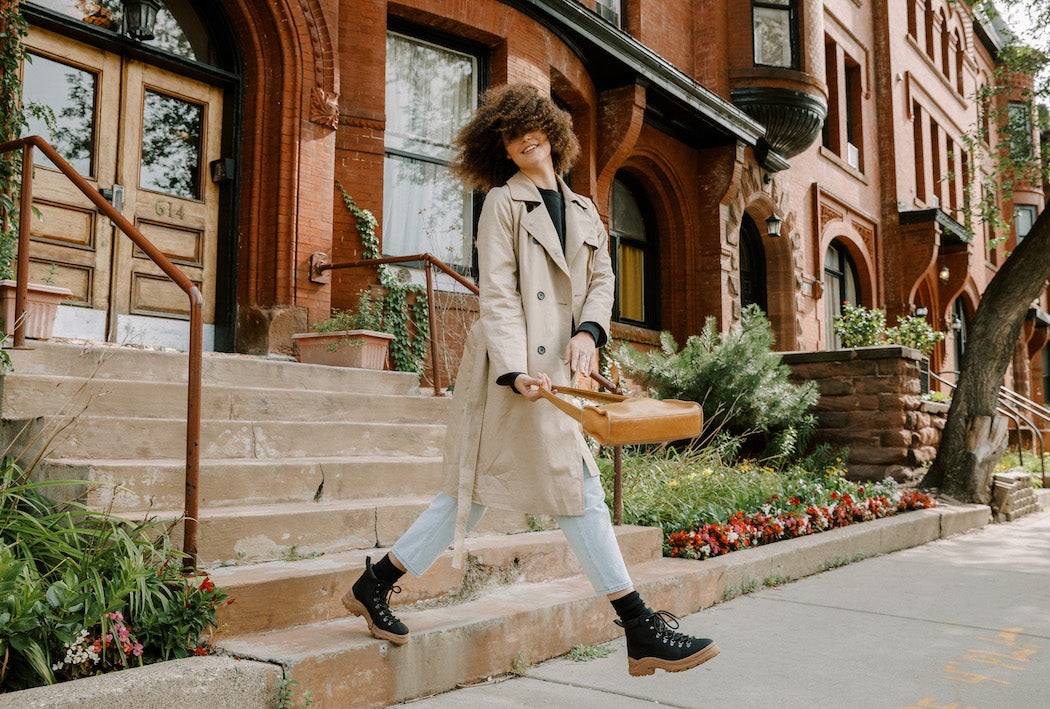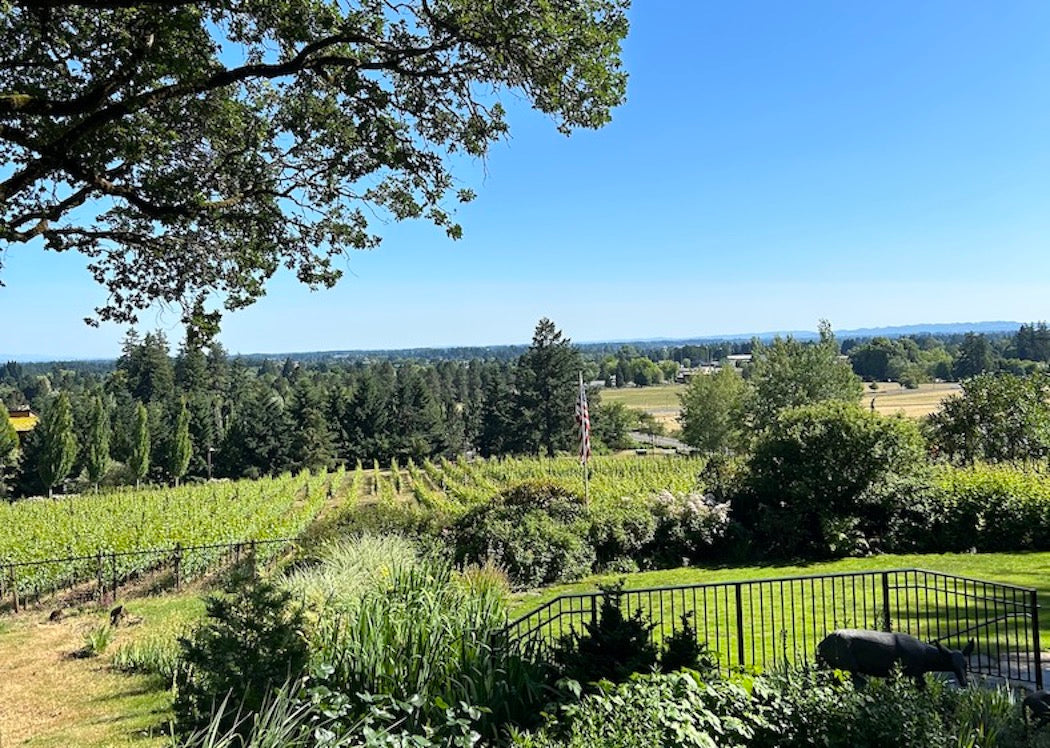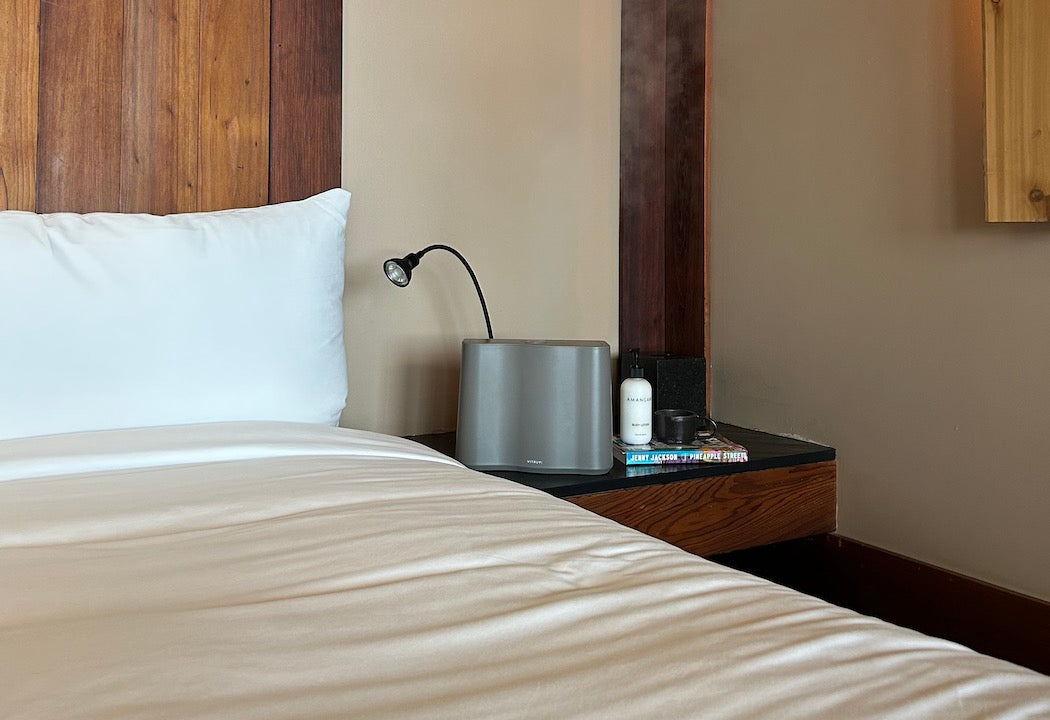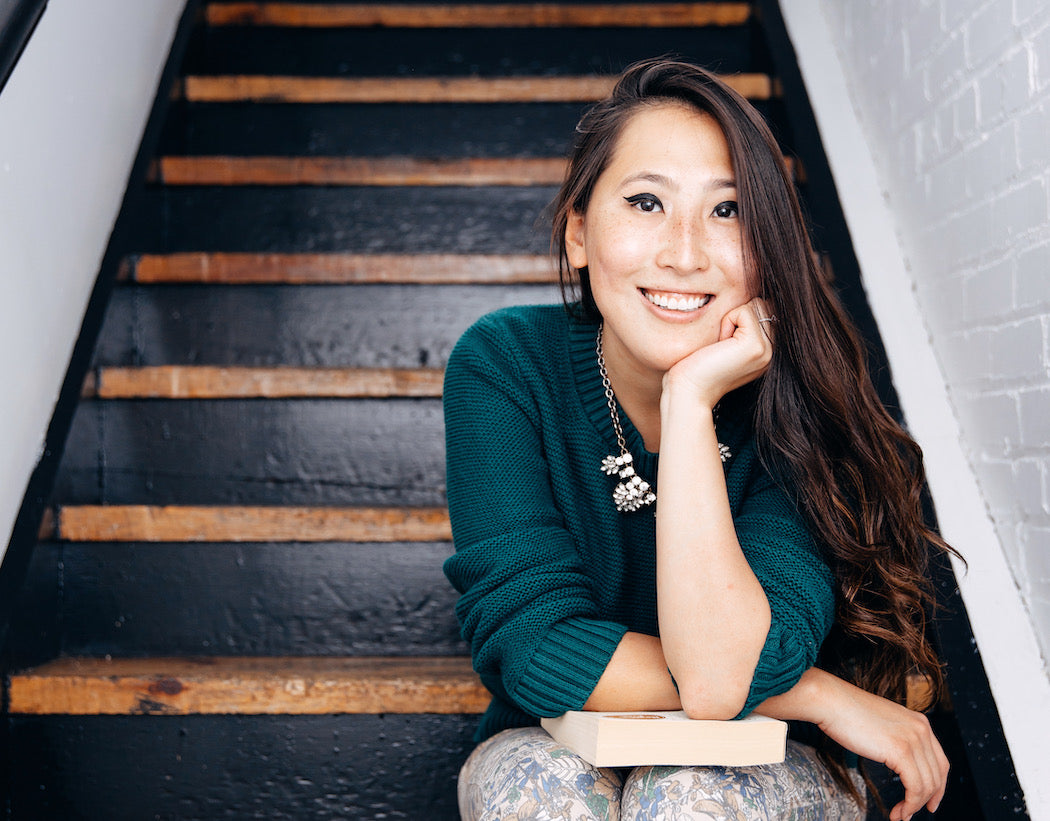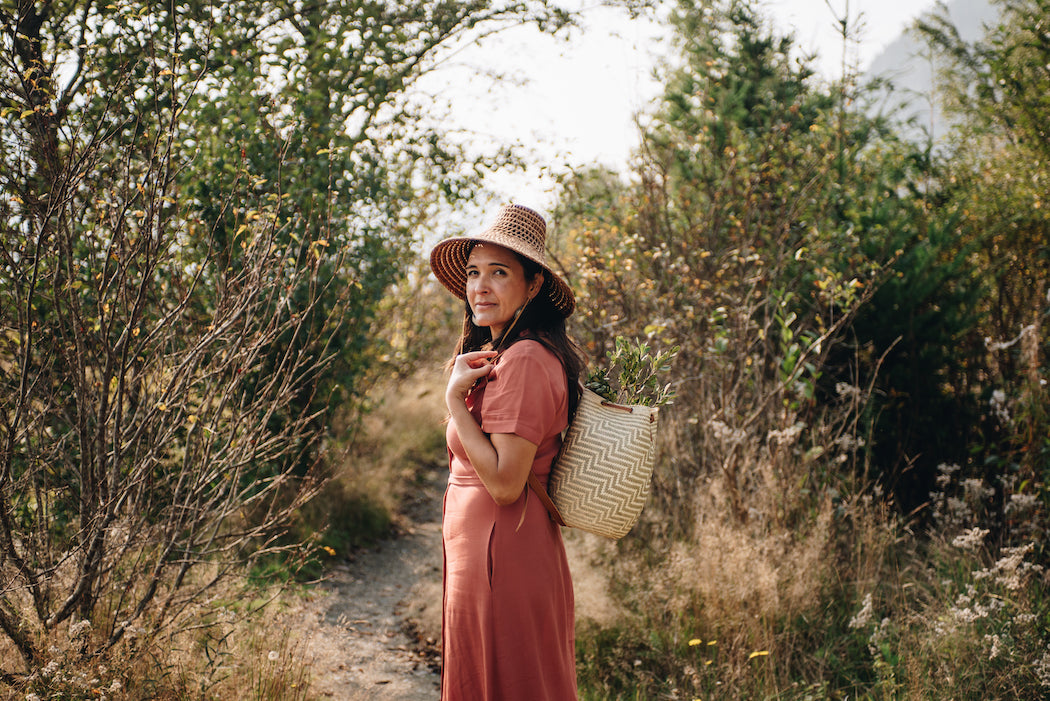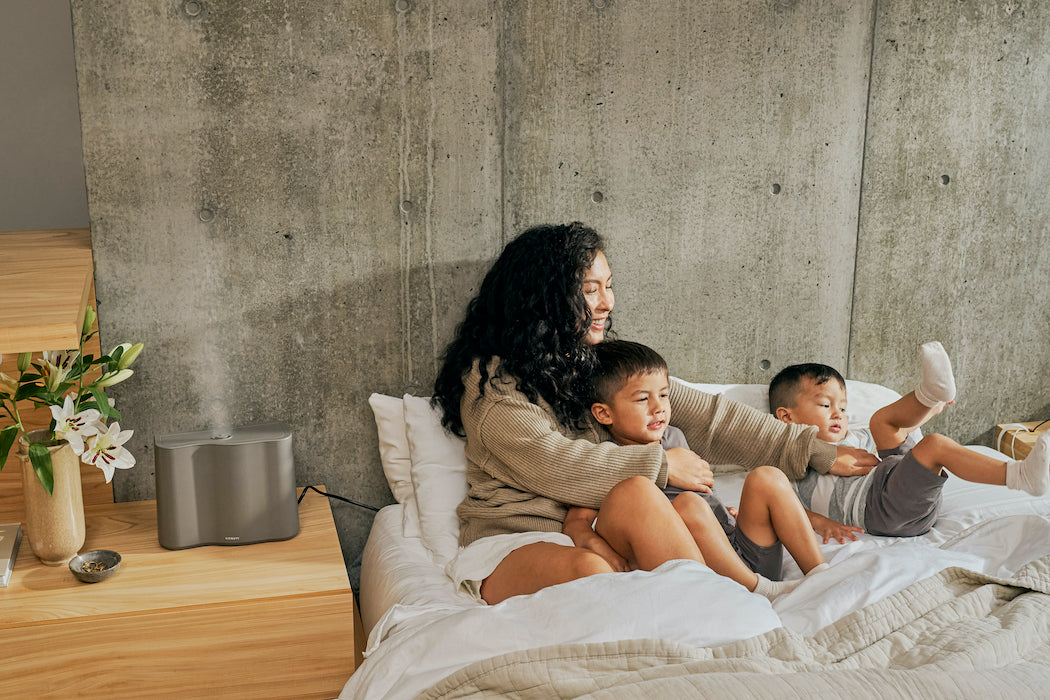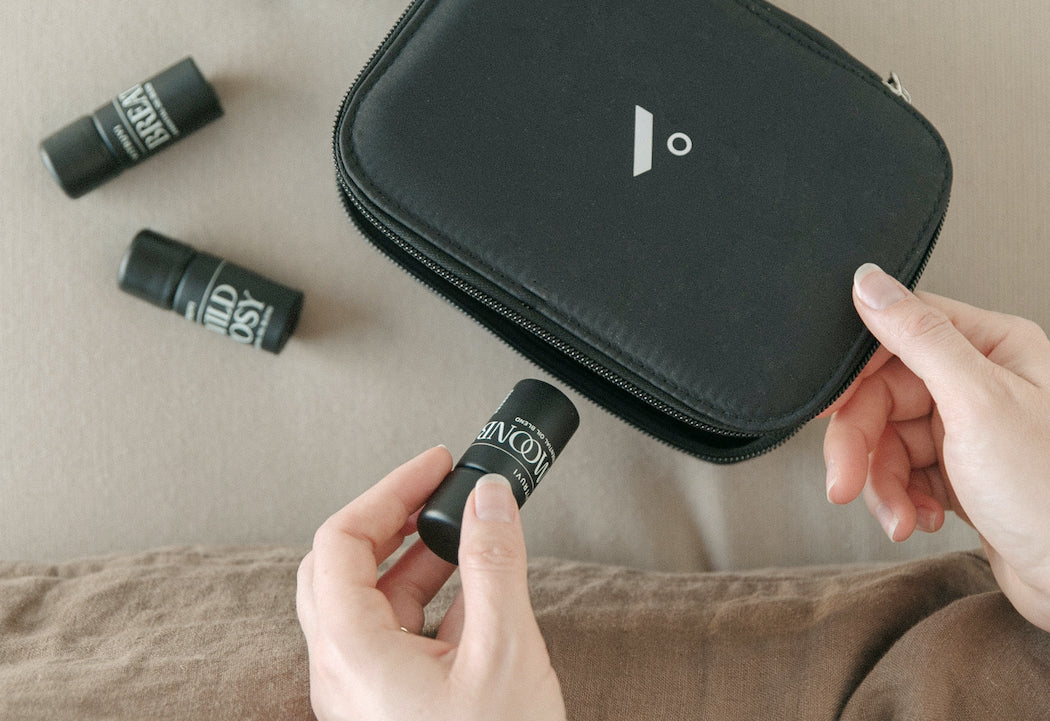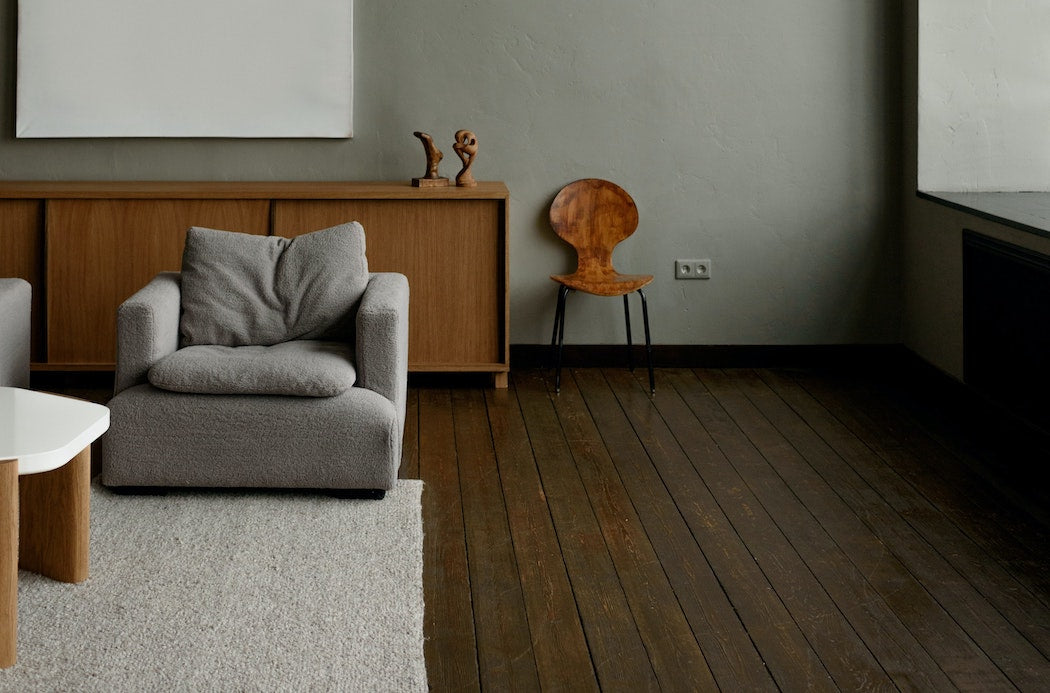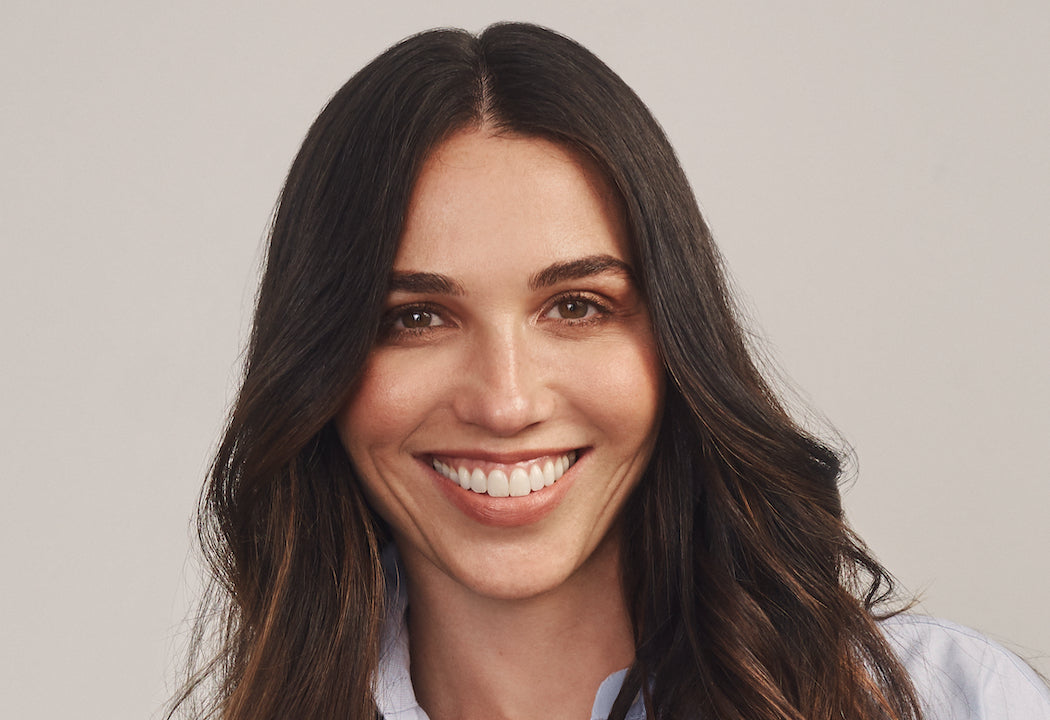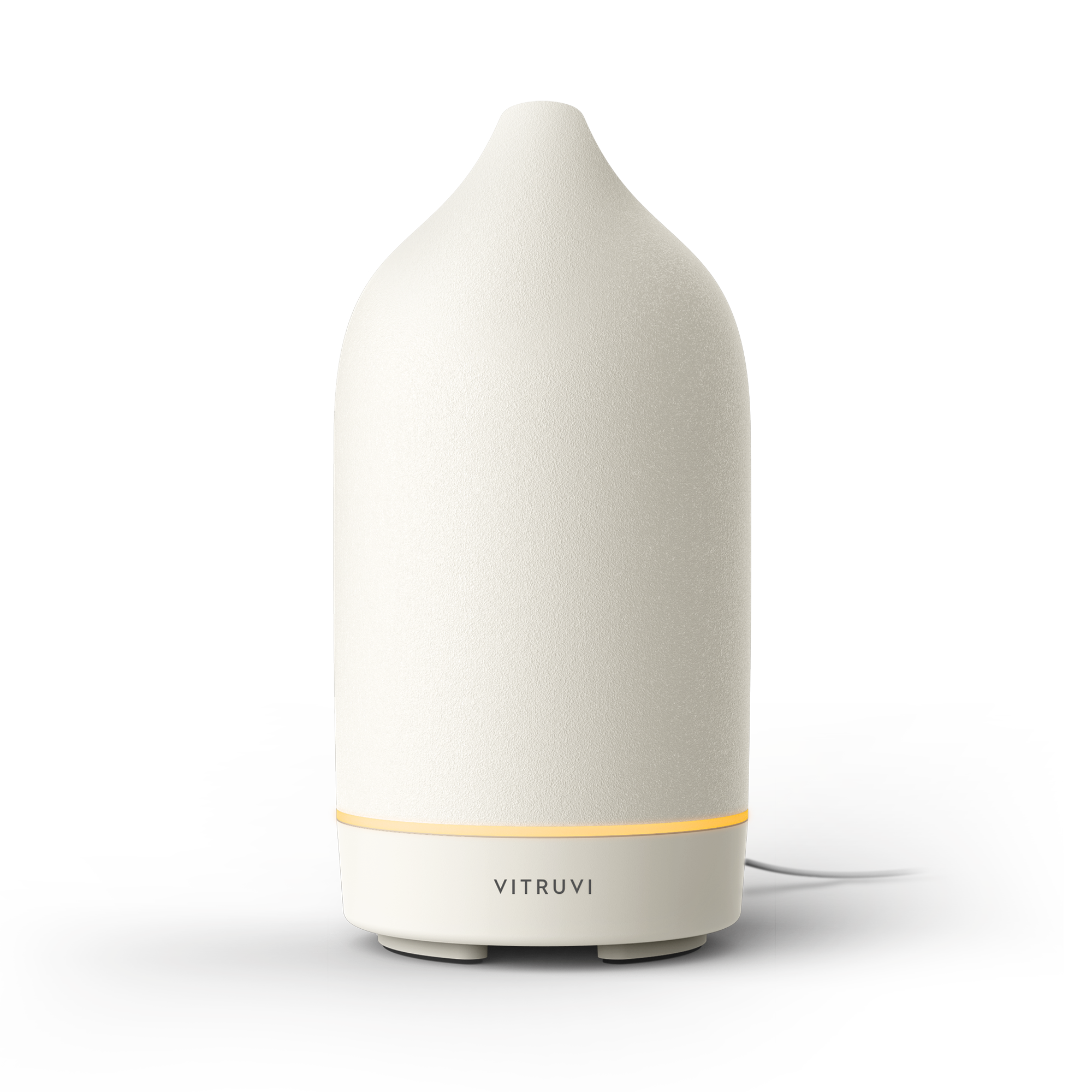Sofi Khwaja never had aspirations of working in fashion, but now she runs a shoe brand.
A curious path, you might say—until you learn the origin story.
It all started when Khwaja and her husband Nicholas Horekens were doing humanitarian work with the United Nations, and were struck with the idea for a different kind of social impact.
“At the time we were in North Africa and we were working with the UN Refugee Agency,” Khwaja says. “And as we were coming to the end of our stints, it was: ‘Yes, we can chase wars around the world the rest of our lives, being on the back end of this change—or we can try to find some creative solution to address some of the inequities that we kept seeing as we went from duty station to duty station.’”
The goal: a business that would incite real change, using their knowledge of global issues to fuel a model focused on ethics, sustainability, and community. It could have been anything, really; but they settled on functional and durable footwear. It was part whim, part heart (the couple loves the outdoors). Either way, it resulted in Thesus (formerly Alice + Whittles).
The brand launched with espadrilles and now has three designs: a sneaker, a rain boot, and a hiking boot. The thing that ties them all together is a focus on production and materials; each shoe is as sustainable as can be, using recycled and vegan options wherever possible, with everything sourced sustainably and ethically. Each time an idea for a new shoe or textile comes to mind, Khwaja and her husband (and now their toddler son, Émile, as well) move to that region of the world to embed themselves in the local community. This allows them to learn the ins and outs at a grassroots level, working with existing supply chains and in many cases creating entirely new ones. Which gives the locals more financial security. And produces a better-quality shoe.
Via video from her family’s cabin in Gatineau, Quebec, Khwaja discusses the impact of her company, working with her husband, and how she likes to get outside.
Let’s talk about the origins of the brand. How did it start with you and your husband working for the United Nations?
The last post we had was really smack in the middle of the Arab Spring. The onset of the Arab Spring was a fruit seller who set himself on fire because of high inflation rates, and he couldn’t afford to feed his family anymore. So much about these injustices that we were seeing leading to all of the unrest had the economy at the core. And so we said to ourselves at the end of this post, “Look, let’s try something different. Let’s try to find a creative solution.” But we knew we wanted to use an economic model to do it.
This was about a conceptual model, an economic model, using a company to facilitate a positive change on people and the planet. Period. It could’ve been anything, but we were using it as a vehicle to incite change. So then we left our posts and took sabbaticals, and moved to India for six months to just learn about the garment industry from the very beginning. And that took us right down to agriculture and raw materials—so not just labour, but also how raw materials feed into it.
Going deeper into the topic of social impact, can you talk a bit about how your company’s model differs from the average footwear brand?
We worked with this local manufacturer [in Sri Lanka] to grow a supply chain for our rubber boots. When we came, they were making maybe one or two rain boots, and now they’re making 1,000 a day down the line, also for other companies. We really developed that product line with them. We ourselves as a brand purchased every kilogram of rubber directly from the rubber producers. We support those rubber producers with premiums that support their living and working conditions. And then we work with a local family-run factory to actually produce the rain boots. We spent six months there, getting to know the factory owners, living in the rubber forest to know exactly where the raw materials were coming from.
Then we started opening up design in Portugal, where there was a real spirit of innovation towards sustainability and using recycled materials in the production of footwear. And that’s where our latest collection comes from, and that is our Weekend Boot. I don’t think there would be any other boot as sustainable right now on the market. We use recycled ocean plastics on the outer, it’s all vegan glues, a natural rubber sole, and 45 per cent of that sole is recycled rubber. There’s no leather anywhere in the product; we’ve used a fully recycled inner lining that gives it some structure. We partnered with the auto industry in Portugal and used recycled materials that they use on dashboards, actually, and put that into the footwear. So it’s taken years to develop this boot, but now the result of it is, by weight, over 95 per cent of its materials are recycled. And we work with a family-run factory in Portugal. We spent six months there last year. It was a whole other level of care. We moved our entire family there—my two-year-old son and my husband. Normal companies don’t do that; it’s not a good investment for them. For us, it’s the only reason why we’re in business.
What made you settle on footwear as the vehicle to explore this business model?
We didn’t want to just flood the market with stuff that people already had and that people didn’t need. I could live with my clothes for the rest of my life; I don’t need any more. More people need footwear than they need more clothes, I think. It really came from a necessity of what the world needs as opposed to what we just want more of.
And footwear is so technical; we were so naive going into this, we had no idea. Building footwear is like building a piece of architecture on one’s foot. Knowing that every single human foot is different, it’s really difficult. So once you get a technical specialization in footwear, you better use it—because it’s a high threshold of learning. It’s not like garment-making at all. So we focused on footwear, and I guess we focused on outdoor footwear because we love the outdoors. It’s the one thing that keeps us sane: being outside as much as we possibly can. So it was filling that need, as well. I don’t think I’d ever make high heels.
What are some of your favourite ways to experience the outdoors?
For the first couple months of COVID—we live in downtown Toronto; we live in a loft—we were petrified of what was going to happen if there was a total lockdown in the city. Being trapped in a condo with your child, it was terrifying. We ended up just really paring things back and every morning we spent about two hours at High Park, and there’s this beautiful wooden trail area where we wouldn’t really see other people at all. We’d just be running through the trails or walking through the trails, or building huts, looking at ducks; we did a lot of birdwatching. It was so wonderful to pare our lives back and just be in awe of those simple things, which tended to be things in nature and not things we thought we needed. COVID really forced us to just look at the simplicity of what was in our backyards and enjoy that. So a lot of our outdoor activities are literally throwing rocks into lakes or just walking through a trail with our son and seeing the joy that he has in picking up sticks.

How else have you been taking care of yourself these days?
I found personally one of the biggest things has been meditation and getting quiet time to read by myself, and that happens at 5 a.m.
At 5 a.m. I wake up, and I need to spend 15 minutes in meditation, and then at least half an hour just reading something that does something for my soul or my insides. Because that is literally the only time of day that’s for myself. The rest of the day is for my son or for work or for my team or for my husband; that’s the only time that’s for me, and my days are so much better for waking up at that time and spending that time just by myself.
What has it been like to build your business with your husband?
It certainly makes you a whole other level of closeness in a very quick time period. I think we’ve had two lifetimes’ worth of marriage; my husband and I have been together for 10 years, but it feels like much longer. It was certainly challenging at the beginning. My character is to lead, and by character Nic is very soft-spoken. I think if someone were to bring up antiquated gender roles, they would be totally reversed in our situation. We just don’t adhere to those gender roles. But it took time, probably for all of us, to come to terms with the fact that that’s actually okay. He doesn’t need to have the primary role in the company, and I don’t need to be the primary caregiver of our child. Nic has taken a bit of a back seat and is doing most of the caregiving now with Émile, and it’s never worked better.
I think when you’re self-aware and you know your own strengths and weaknesses so well and you can be honest about them, then things can fall into place. It’s when you’re battling up against these archetypes that you feel like you have to become, or these images that the world tells you that you should be, that there’s a real struggle. If you just submit to the fact that your place is your place and that’s where you’re meant to be and that’s okay, then you don’t need to conform to something else and you just are who you are.
Circling back to the topic of sustainability, it’s obvious that what you’ve built was not easy to do. But how do we get to a place where sustainable production in fashion is the norm instead of an anomaly?
I think it’s going to be with brands like us. We’re the ones that will take the risk. We’re the ones that are going to be doing it—there’s heart behind it because there’s some grander vision behind it. And once we can demonstrate that you can not just be profitable but can thrive doing it that way, then the bigger companies are going to follow suit.
It’s coming, it’s definitely coming. And the more demand that is fuelled, the more the industry is going to be able to invest in it. A lot of big companies are testing out sustainability, but consumers also need to say, “This is something we demand, this is something that we want.” And then the production changes with it. So it just takes time; it takes a long time. And I think the key to that is consumers have to be vigilant and demand transparency, and demand more than just lingo and vocabulary being thrown around—really demand accountability from brands.
Our business has grown—I think tripled—since COVID started. People are wanting to stay outside more, and they need footwear to do it. And with sustainability, I think people are becoming more aware of how important it is to take care of our planet. When the chatter of the world quiets down, we start to realize what’s important.
This interview has been edited and condensed for clarity.

